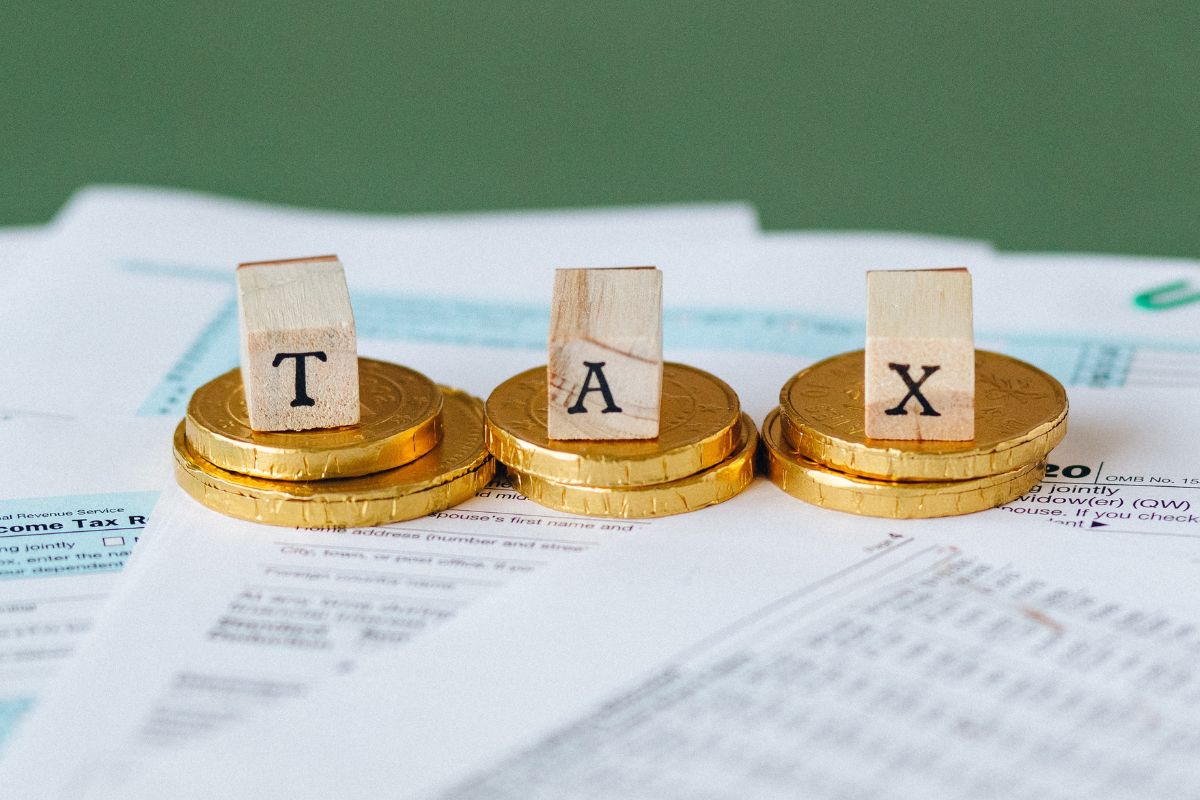Does eBay charge sales tax? The answer is that it depends on where you and your buyers are located.
eBay is required to collect sales taxes in certain states and jurisdictions, but it’s up to individual sellers to determine their own tax obligations for sales made outside of those areas.
If you’ve sold at least $20,000 in gross merchandise value and exceeded 200 transactions for goods and services on eBay in a given year, you will receive a tax Form 1099-K for all your sales transactions including relevant internet sales tax.
Additionally, as of January 2022, the IRS will require all annual online sales over $600 to be reported using Form 1099-K. However, even if you don’t meet these thresholds, you may still be responsible for reporting and paying taxes on your eBay sales.
Post Contents
What Is Sales Tax In eBay?
When you make a purchase on eBay, you may be charged sales tax. Sales tax is a tax on goods and services that is collected by the seller and remitted to the state or local government.
The amount of sales tax you are charged depends on the state and local tax rates where the seller is located and where the item is being shipped.
eBay has a program called “marketplace facilitator” that automatically calculates, collects, and remits sales tax on behalf of sellers for most states.
This means that in most cases, you don’t have to worry about calculating or paying sales tax as a buyer.
However, if you are a seller on eBay, you may be responsible for collecting and remitting sales tax to the appropriate state or local government.
If you sell at least $20,000 in gross merchandise value and exceed 200 transactions for goods and services on eBay in a year, you will receive a tax Form 1099-K for all your sales transactions, including relevant internet sales tax.
It’s important to note that not all eBay transactions are subject to sales tax. For example, if you purchase an item from a seller who is located in a state that does not have a sales tax, you will not be charged sales tax.
Additionally, some items may be exempt from sales tax, such as certain types of food, clothing, and medical supplies.
Overall, it’s important to be aware of sales tax when buying or selling on eBay.
As a buyer, you may be charged sales tax on your purchases, and as a seller, you may be responsible for collecting and remitting sales tax to the appropriate state or local government.
When Does eBay Charge Sales Tax?
If you’re an eBay seller or buyer, you may be wondering when eBay charges sales tax. eBay charges sales tax on eligible purchases in states that require it by law.

In these cases, sellers don’t need to do anything. However, if the buyer is located in one of the many states that have introduced marketplace facilitator laws, eBay will automatically calculate, collect, and remit sales tax for most states. In this section, we’ll explore the two main scenarios where eBay charges sales tax.
Nexus States
If you’re a seller located in a state with sales tax, you may have to collect sales tax on eBay transactions.
This is because you have a physical presence in that state, which is known as having “nexus.” If you’re located in a state with sales tax, you should check with your state’s tax authority to find out if you have nexus and if you’re required to collect sales tax.
Marketplace Facilitator Laws
Marketplace facilitator laws require online marketplaces like eBay to collect and remit sales tax on behalf of sellers.
This means that eBay will automatically calculate, collect, and remit sales tax for most states.
However, if you’re located in a state that doesn’t require eBay to collect sales tax, you may still be responsible for collecting and remitting sales tax on eBay transactions.
To see if eBay is required to collect sales tax in your state, you can check eBay’s Sales Tax Collection page.
This page provides a list of states where eBay is required to collect sales tax, as well as information on how to set up sales tax in your eBay account if you’re required to collect sales tax.
In summary, eBay charges sales tax on eligible purchases in states that require it by law.
If you’re a seller located in a state with sales tax, you may have to collect sales tax on eBay transactions.
If you’re located in a state with marketplace facilitator laws, eBay will automatically calculate, collect, and remit sales tax on behalf of sellers.
How To Determine If eBay Is Charging Sales Tax?
If you’re an eBay seller or buyer, you might be wondering if eBay charges sales tax on your transactions.
The answer is yes, eBay does charge sales tax on some transactions. However, not all transactions are subject to sales tax, and the amount of sales tax charged can vary depending on the state and the type of item being sold.
To determine if eBay is charging sales tax on your transaction, you can follow these steps:
- Check the item listing: If the seller is required to charge sales tax, it will be indicated in the item listing. Look for a statement like “Sales tax will be charged for buyers in [state name].”
- Check your invoice: If you’ve already purchased an item, you can check your invoice to see if sales tax was charged. If sales tax was charged, it will be listed as a separate line item on your invoice.
- Check your state’s sales tax laws: Sales tax laws vary by state, so it’s important to check the laws in your state to determine if eBay is required to charge sales tax on your transactions.
It’s important to note that eBay only charges sales tax on transactions where the seller is required to charge sales tax. If the seller is not required to charge sales tax, eBay will not charge sales tax on the transaction.
In addition, eBay only charges sales tax on certain types of items. For example, eBay does not charge sales tax on the sale of certain food items or prescription drugs.
If you have any questions about whether eBay is charging sales tax on your transaction, you can contact eBay’s customer service for assistance.
How To Avoid Paying Sales Tax On eBay?
When shopping on eBay, it’s important to understand that sales tax may apply to your purchases.
However, there are a few ways you can avoid paying sales tax on eBay.

- Purchase from sellers located in states without sales tax: If you purchase from a seller located in a state that doesn’t have sales tax, you won’t be charged sales tax on your purchase. You can check the seller’s location in the item description or by contacting the seller directly.
- Purchase from sellers who don’t charge sales tax: Some sellers on eBay may choose not to charge sales tax on their items. This is not required by eBay, but it’s a possibility. You can check the item description or contact the seller to confirm if they charge sales tax.
- Purchase from tax-exempt sellers: Certain organizations and groups qualify as exempt from sales tax and may make purchases on eBay without paying sales tax. You can check the seller’s tax-exempt status in the item description or by contacting the seller directly.
- Purchase items that are exempt from sales tax: In some states, certain items are exempt from sales tax. For example, clothing and food may not be subject to sales tax in some states. You can check your state’s sales tax laws to see if any items you’re interested in purchasing are exempt.
It’s important to note that avoiding sales tax on eBay may not always be possible or legal. Make sure to check your state’s sales tax laws and consult a tax professional if you have any questions or concerns.
Key Takeaways
If you are an eBay seller, it’s important to understand how eBay handles sales tax. Here are some key takeaways to keep in mind:
- eBay requires sellers to collect and remit sales tax on applicable transactions, based on the buyer’s location and the tax laws in that jurisdiction.
- eBay automatically calculates and collects sales tax for most states, but it’s still your responsibility to ensure you are complying with all applicable tax laws.
- If you sell at least $20,000 in gross merchandise value and exceed 200 transactions on eBay in a calendar year, you will receive a tax Form 1099-K for all your sales transactions, including relevant internet sales tax.
- You may also be required to pay other taxes, such as income taxes, self-employment taxes, payroll taxes, and more, depending on the size and nature of your business.
- It’s important to keep accurate records of all your eBay sales and related expenses, so you can properly report your income and deductions on your tax returns.
- If you have any questions or concerns about your tax obligations as an eBay seller, it’s a good idea to consult with a qualified tax professional who can provide guidance and advice tailored to your specific situation.
By keeping these key takeaways in mind, you can ensure that you are meeting your tax obligations as an eBay seller and avoiding any potential penalties or other issues down the line.






























